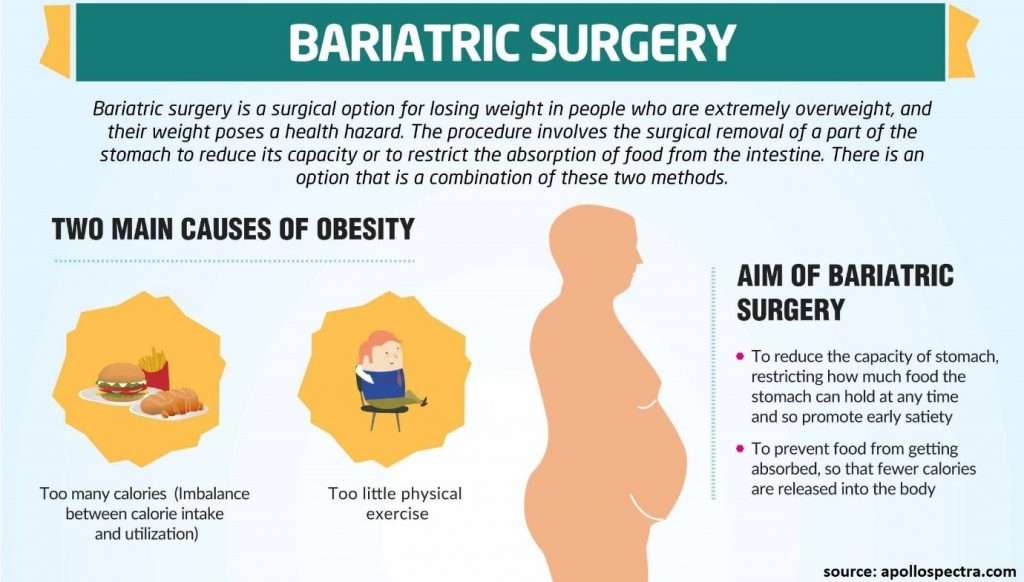It is no secret that obesity has serious health risks. Not only are several everyday routines more challenging for you, but obesity itself raises the risk of building various deadly yet avoidable diseases.
You may know about the association between obesity and type 2 diabetes. However, diabetes is not the only thing; obesity can cause other health issues as well.
Fortunately, bariatric surgery is a fantastic option for losing huge quantities of weight. It can also decrease the risk of certain health conditions.
If you are looking for experienced bariatric surgeon in Mumbai, Consult Dr Harsh Sheth
Best of all, several bariatric surgery patients have noted that their obesity-connected problems have gone reduced or even disappeared completely, regardless of actual weight loss!
So, what are these problems, why are they linked to obesity, and how can weight loss surgery in Mumbai, will help you to deal with them? Let’s find out.
Problems Stemming from Obesity
It is essential to know, obesity itself is a health risk factor. Even though you cannot determine your health condition by checking the weight alone, you certainly will be healthier if you are in a healthy weight range.
Commonly, it is good for you to be overweight than obese, and you should be at a healthy weight than to be overweight.
It is not an opinion or a philosophical stance. Medical science supports this fact and proves it as more people die of avoidable health-related causes stemming from obesity.
Health Problems Caused by Obesity
These are some of the health problems that come with obesity:
Joint pain:
If you are heavy, you put more pressure on your joints when you move. This pressure creates joint pain because the cartilage in your joint wears down. Joint pain can come to a point where you are entirely unable to walk, and you may rely instead on mobility carts to move around.
Difficulty breathing:
Extra fat tissue can encroach on your internal organs, making your normal functions challenging. Your lungs are no different. Even though your rib protects your lungs, they are not safe from the pressure you put on them by visceral fat tissue.
Sleep apnea:
You are more likely to build up sleep apnea because fat is accumulating around your neck. This fat puts pressure on and can block the airway while you are sleeping. The result is sleep apnea; sleeping with a CPAP machine provides the best treatment.
Health Risks Associated with Obesity
Even though obesity can bring many health problems, these are some of the common health risks associated with obesity:
High blood pressure:
There are various mechanisms through which obesity influences your blood pressure levels, but the evidence is clear: obesity raises your risk of developing high blood pressure. High blood pressure can lead to severe cardiac events that can result in death.
Type 2 diabetes mellitus:
Type 2 diabetes is probably prevalent comorbidity, and the reason is simple; cells that become more resistant to insulin cause type 2 diabetes. Insulin is a compound that helps your body control glucose, an essential part of organic chemical reactions.
Insulin controls your blood glucose levels, and if your cells are resistant to insulin, your blood glucose levels get difficult to control! Fat cells have shown to harm insulin sensitivity, and the result is type 2 diabetes.
How Bariatric Surgery Helps?

Bariatric surgeries such as gastric bypass, lap-band, gastric sleeve, and orbera balloon surgery change your digestive system.
The surgery does two things:
- Decrease your eating capacity
- Reduce your ability to digest large quantities of food at a time. Due to this, you lose weight.
When done in a controlled environment, this dramatic weight loss can provide excellent health benefits under a doctor’s supervision. You can walk again, your sleep apnea will disappear completely, and you can get off your blood pressure medications.
Even if you do not lose a huge amount of weight, you may find that your lower food consumption helps regulate your blood sugar.
For many patients, bariatric surgery is the last option. A severely obese (BMI of 35+) person in their 40s does not have an excellent prognosis for their future.
Most bariatric surgery patients decide to take this approach due to a life or death situation.
If you want to know more about bariatric surgery and how it can help you, then consult your surgeon. They can help you understand how this treatment will benefit you.

